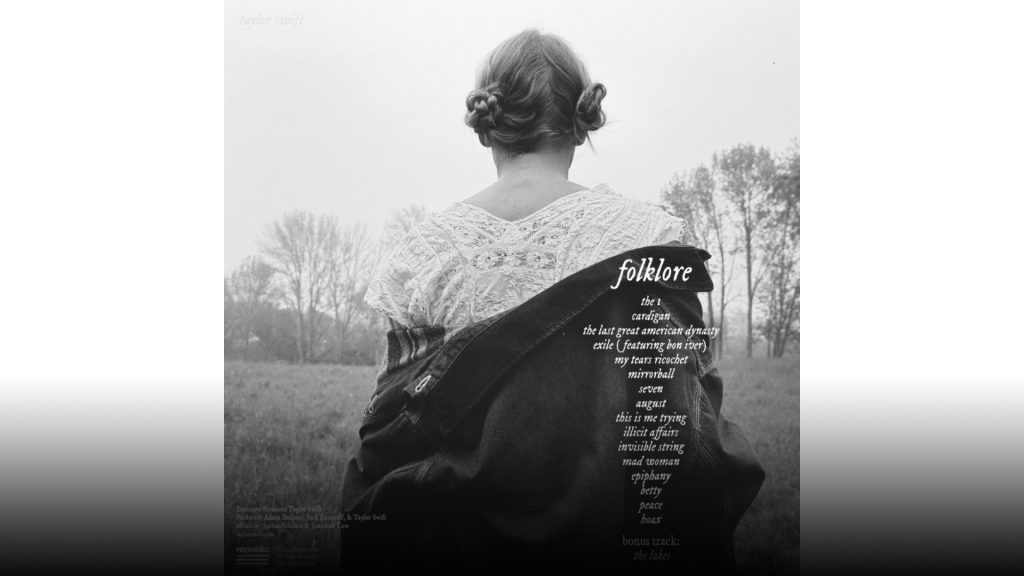Folklore Is Taylor Swift’s Best Album Yet
The summer of 2020 left many artists in unforeseen circumstances, with many having to call off headlining tours.
Taylor Swift was one of those artists. She was scheduled to perform shows across the globe as part of Lover Fest, a concert tour that celebrates her seventh studio album, Lover (released in August 2019). She was also going to be the 2020 Glastonbury Festival’s first female headliner since 2016.
As events were postponed or cancelled due to the coronavirus, Swift didn’t waste her time—she instead wrote her next album.
Folklore, her eight studio album, was unexpectedly announced only 16 hours before it dropped on July 24 at midnight. According to Swift, she would have normally waited to release the sixteen-track album (which includes a seventeenth bonus track) but the pandemic reminded her that “nothing is guaranteed.”
Throughout the years, Swift’s music genres have evolved. Her first album, Taylor Swift (2000) had a small-town country sound. Fearless (2008), Speak Now (2010) and Red (2012) mix country with pop. 1989 (2014), Reputation (2017) and Lover (2019) leave country music behind and indulge fully into pop.
Folklore explores indie folk and alternative rock—and I’m here for it.
Swift wrote the album during her four months of self-isolation. She collaborated with multiple artists, such as rock guitarist from The Nationals Aaron Dessner (who co-wrote and produced 11 of the album’s 16 songs), the Indie folk band Bon Iver (who co-wrote Exile, the album’s fourth track) and long-time collaborator Jack Antonoff, who sings for pop band Bleachers and plays the guitar and drums for indie rock band Fun.
In a personal essay that interprets Folklore, Swift explains that the album is written from different perspectives—her own, people she knows, people she never met, and people she wishes she hadn’t met. That theme can be seen throughout the album.
The Last Great American Dynasty seems to tell the story of Rebekah Harkness, a famous heiress from St. Louis who once owned Swift’s Rhode Island coastal mansion. The lyrics explain that Swift is done trying to hold a “good girl” image or caring about what other people think about her.
The freeing lyrics and carefree attitude might refer to Swift’s contentious battle with record executive Scooter Braun. Swift claimed that Braun acquired her former record label, Big Machine Records—along with the rights to Swift’s songs—without her knowledge. That led her to sign with Republic Records last November, leaving the problem behind.
Cardigan, Betty and August all circulate around a fictional teenage love-triangle. They represent the perspectives of Betty, James (her partner) and his lover respectively. Specific lines like Cardigan’s “you’d be standing on my front porch light” and Betty’s “I’m here on your doorstep” link one song to the other, creating an entanglement like that of a love-triangle.
Seven has a mellow sound accompanied by daunting yet beautiful lyrics, which seem to talk about Swift’s youth. The song speaks about having a childhood friend with a bad home life, but being too innocent to understand that she couldn’t fix her friend’s situation.
Mad Woman tells the tale of a misfit widow who is getting revenge on the town that cast her out. Some connect it with Swift’s personal problems with Braun and Kanye West, who dissed Swift in his song Famous.
Whatever overlapping meaning the songs in Folklore hold, it is undeniable that Taylor never fails to impress. Listening to this album made me remember why I first started listening to music, and why I will always support her.
Folklore showcases Swift’s great storytelling ability. The lyrics will stick with you. This album’s soothing and pensive tone differ from her usual joyous pop albums, but it’s one of her best. If you are someone who appreciates artistry and looks for storytelling in music, then this album is for you.




